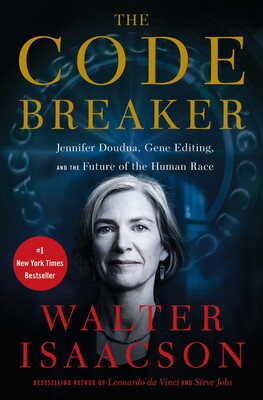We Haven’t Really Cracked the Code of Life
By Jag Bhalla,
Issues in Science and Technology
| 09. 01. 2021
To say that scientists now understand life’s “code” is a stretch. So, from the very title of Walter Isaacson’s latest biography, The Code Breaker: Jennifer Doudna, Gene Editing, and the Future of the Human Race, he’s off to a rocky start. And that isn’t the only conceptual gap papered over by this beautifully built behemoth. To suggest that Doudna is a “code breaker” is to compare her to, say, the British code breakers of World War II who cracked the notorious German Enigma code. But when it comes to DNA, our code breaking isn’t all it’s cracked up to be: if the Allies had had the same level of expertise in actual cryptology that scientists now have with DNA, they might well have lost World War II.
The Code Breaker contains 481 pages of Oscar-level cinematic prose, providing a whistle-stop tour of how Jennifer Doudna, a biochemist at the University of California, Berkeley, and a large supporting cast discovered and developed the gene-editing technology known as CRISPR—an acronym for clustered regularly interspaced short palindromic repeats. These repeating DNA features...
Related Articles
By David Jensen, California Stem Cell Report | 02.10.2026
Touchy issues involving accusations that California’s $12 billion gene and stem cell research agency is pushing aside “good science” in favor of new priorities and preferences will be aired again in late March at a public meeting in Sacramento.
The...
By Lauren Hammer Breslow and Vanessa Smith, Bill of Health | 01.28.2026
On Jan. 24, 2026, the New York Times reported that DNA sequences contributed by children and families to support a federal effort to understand adolescent brain development were later co-opted by other researchers and used to publish “race science”...
By Arthur Lazarus, MedPage Today | 01.23.2026
A growing body of contemporary research and reporting exposes how old ideas can find new life when repurposed within modern systems of medicine, technology, and public policy. Over the last decade, several trends have converged:
- The rise of polygenic scoring...
By Stephanie Pappas, LiveScience | 01.15.2026
Genetic variants believed to cause blindness in nearly everyone who carries them actually lead to vision loss less than 30% of the time, new research finds.
The study challenges the concept of Mendelian diseases, or diseases and disorders attributed to...




